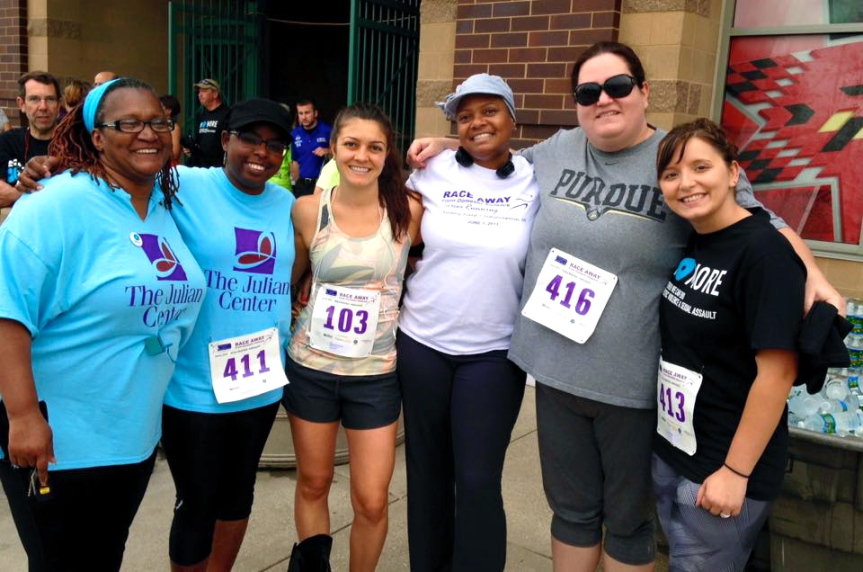Freedom From Fear
Before the 1970s, domestic violence was something that did not really exist. Not because it didn’t happen, but because it was rarely acknowledged. Violence in the home often went unchecked, hidden behind the privacy of closed doors. But in 1975, a small group, founded by the Episcopal Diocese of Indianapolis and funded by the Lilly Endowment, began to provide information, referrals, and support to women who were being abused.
Today, that group is known as The Julian Center. Their reach and services have expanded over the years to meet the needs of the community. Christine Kung’u is The Julian Center’s Legal Services Manager and refers clients with legal issues to Neighborhood Christian Legal Clinic. She says, “We provide services to victims of domestic violence, sexual assault—men, women, and children, and transgender clients as well.” Now, The Julian Center offers shelter, transitional housing, counseling services, and ongoing case management for victims and families, among other services. They are a one-stop shop for those in crisis.
Of course, serving such a clientele comes with a unique set of difficulties. Christine explains, “When you’re talking about a victim, this is someone who has been broken down by someone else … When a victim comes into the shelter, you’re sort of helping them rebuild that. Rebuild their confidence so they know some of the things we take for granted, like you get up in the morning and you do what you want. The victim doesn’t know they can do that because they’ve been under the control of someone else. So I think through the services that we offer the client is able to slowly break out of that shell. Break out and be empowered again and to realize that, ‘Oh, hey, I can do this. I am worthy and I am able to do what I need to do for myself and for my family without being afraid.’”
A large part of The Julian Center’s work is helping a client recognize that the abuse is not their fault. Christine says, “Now that may take a long time. Different statistics say sometimes the victim will go back to an abuser up to seven times, but this is a process for the survivor, for the victim, and once that is realized, I think that’s the greatest goal.” And The Julian Center promises to be there whenever that moment might occur. Christine says, “We are open 24/7. Our crisis line is open throughout the year. It doesn’t close. Our shelter doesn’t close. If this client feels safest to leave their place at 3am, we’ll transfer them and move them into the shelter … I think that’s helpful for the client to know that, ‘Whenever I am ready, whatever time I’m ready,’ we will help.”
Although Christine acknowledges the inherent difficulty of treating those who have endured abuse, she says, “I like to believe that every time a client walks into an organization like The Julian Center or the Neighborhood Christian Legal Clinic or—any other services that help victims of domestic violence—every time [a client does that] they’re empowered to know that they can leave.” She then tells the story of a woman who was a survivor of domestic abuse and who also faced a number of challenges to living on her own due to intellectual disabilities and mobility impairments. But today, she is living in her own apartment with staff funded by the government to assist her regularly. Christine recalls how this woman always made cards and artwork for The Julian Center staff, always considering them first. Christine says, “Just seeing the strength in such a survivor—I always go back to that because then I know anything is possible when we work together as a team. Anything is possible to help a survivor start over.”
24 Hour Crisis Line open 365 days: (317) 920-9320.
For shelter call: (317) 920-9320.
To get involved and volunteer: http://www.juliancenter.org/Get-Involved.aspx
To donate, The Julian Center has a wish list of urgent needs and other daily needs: http://www.juliancenter.org/Donate/Wish-List.aspx

